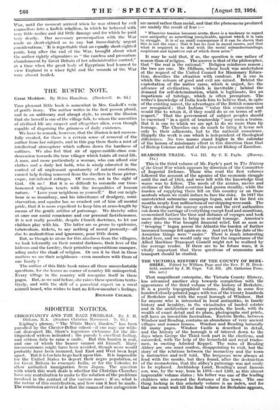This is the third volume of Mr. Fayle's part in
The History of the Great War which appears by direction of the Committee of Imperial Defence. Those who read the first volumes followed the account of the agonies of the economic struggle until the end of 1916, and were left with the knowledge that worse was to follow. The needs of the armies, navies and civilians of the Allied countries had grown steadily, while the burden of supplying them fell on this country or on those neutrals whom we could induce to face the risks. In 1917 the unrestricted submarine campaign began, and in the first six months nearly four million tons of our shipping weresunk. The Navy developed the convoy system and the civil authorities cut down the carriage of everything except food and munitions, economized further the time and distance of voyages and took more drastic means to bring in neutral tonnage. America's entry into the War brought financial relief, but as soon as " trooping " began across the Atlantic the burden of further increased tonnage fell again on us. And yet by the-date of the Armistice things were easier." There is much interesting detail here, and we would only say that the importance of the Allied Maritime Transport Council might not be realized by the average reader. If there are to be future wars, it is vitally important that these questions of economics and transport should be studied.


































 Previous page
Previous page